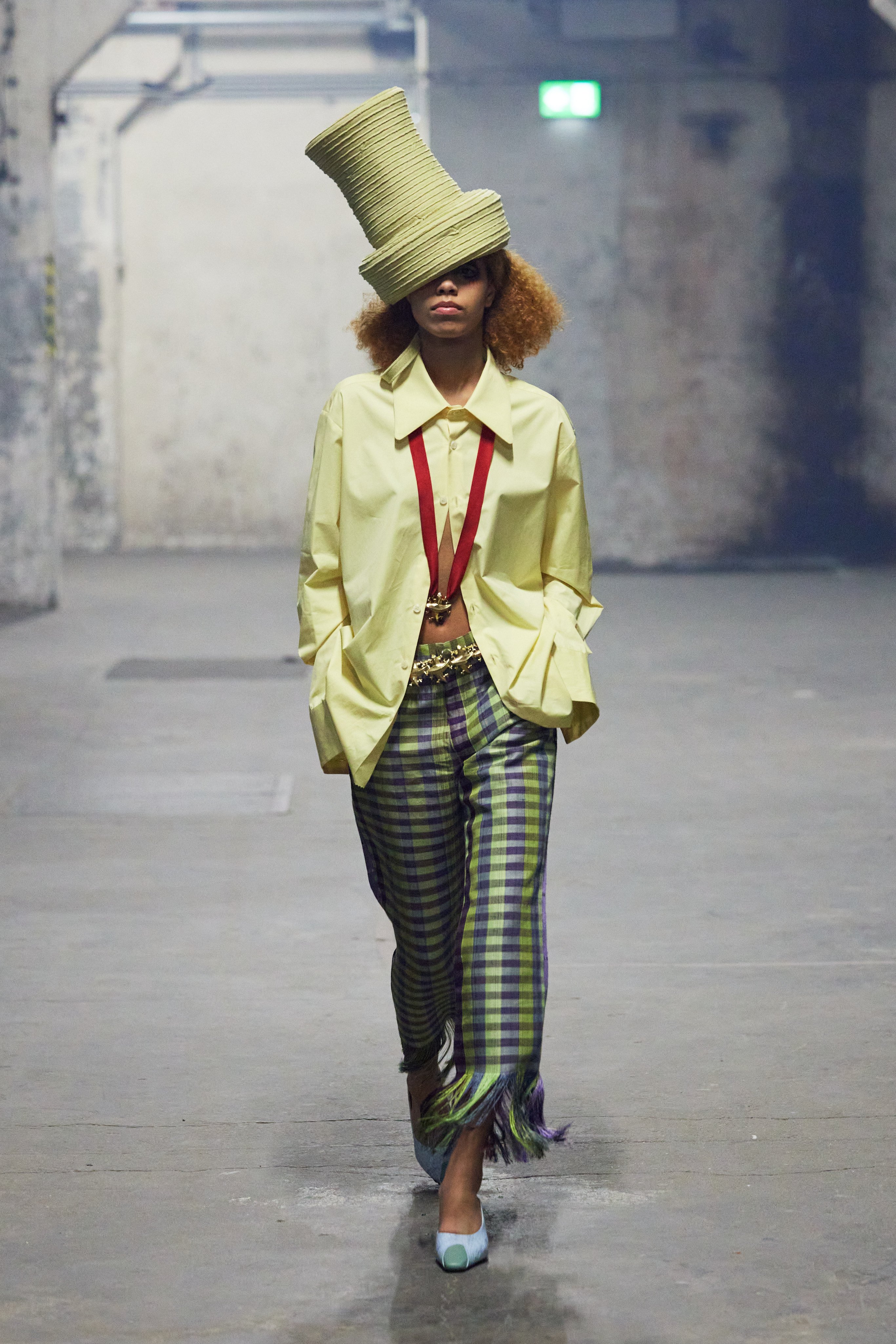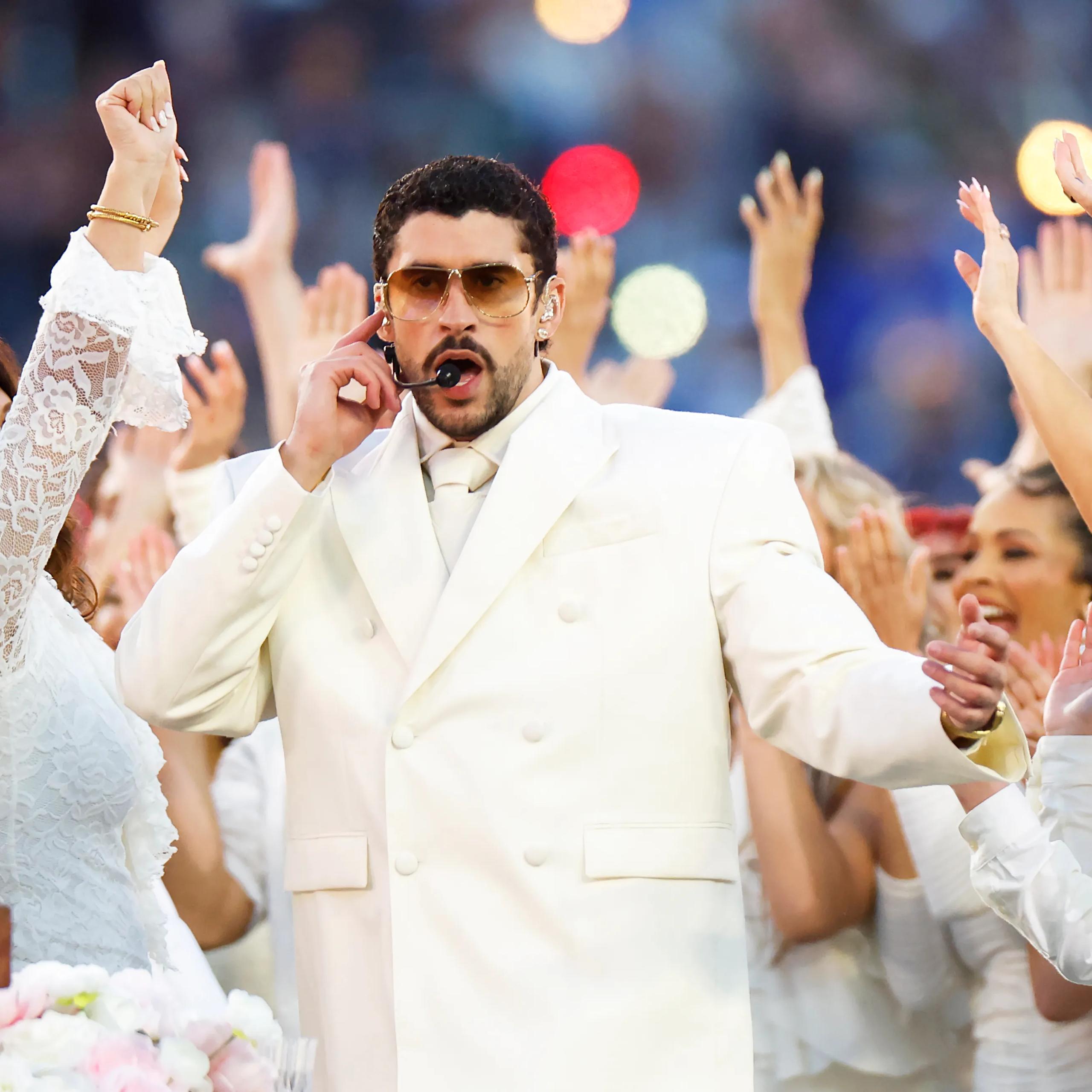The collection officially launches today, Friday, June 27, with the brand currently present at Paris Fashion Week through a curated pop-up experience, alongside a special month-long activation at their Lagos flagship, Maison Magnum, throughout July—inviting community, conversation, and discovery all summer long.
.png)
At the intersection where luxury tailoring meets bold streetwear, Magnum Man stands as a vanguard of contemporary African fashion. Born from tradition but shaped by forward thinking, this brand redefines menswear with a distinctive formula, rooted in heritage, perfected through craftsmanship, and enlivened with contemporary edge. We sat down with founder Olajire, to trace the journey from a tailor's table to a ready-to-wear powerhouse now making waves across the African continent and beyond.
.png)
Deeds Magazine: Could you walk us through the journey of Magnum Man's inception? What sparked the idea to create this particular kind of fashion space?
Olajire O: Originally, Magnum Man is the name of the brand. I actually started out as Magnum Stitches, we were doing bespoke traditional menswear for men across Africa. We had stores in Ilupeju, and Lekki Phase1. The idea was simple: bring tailored African fashion into a premium, modern space.
Then COVID happened. There was a big shift, people needed a way to connect with fashion beyond just physical fittings. That's when I pivoted into ready-to-wear with Magnum Man. But we didn't want to lose the soul of the brand. Everything we do still has that traditional DNA, African fabrics, tailored details, and cultural cues. We work with Aso Oke, and many of our silhouettes still nod to classic Nigerian tailoring. So even in a new format, the heritage remains front and center.
.png)
Deeds Magazine: What are some of the key inspirations, whether from art, culture, history, or personal experiences, that laid the foundation for Magnum Man's aesthetic?
Olajire O: My inspiration comes from our traditions and culture, much like in Japan, where the old seamlessly integrates with the new. We lean heavily on African fabrics and cultural motifs. Last year, for example, we displayed life-size masquerades in the store to inspire our "Egun" collection, which fuses patchwork, vibrant colors, and masquerade patterns. We constantly mine cultural narratives to expand and export our heritage through clothing.
Deeds Magazine: The name "Magnum Man" has a certain resonance. What's the story behind the name and what does it signify for the brand?
Olajire O: We wanted a name that evokes the ideal modern African man, someone rooted in the continent but thriving globally. "Magnum Man" captures that identity, representing Africa's spirit and the modern man's potential, whether on the continent or in the diaspora.
Deeds Magazine: How would you describe the overall design philosophy and aesthetic that defines the collections at Magnum Man?
Olajire O: "Man" in biblical terms means "humankind," so our brand speaks to everyone. In last year's sales, 30–40 percent of purchases were by women, especially styles like our Egun pants and graphic T-shirts. Our DNA is Africa: it shows in our textures, patterns, fabrics, and the stories we tell through each design.

Deeds Magazine: What is your process for curating or designing your featured pieces? What do you look for in terms of quality, style, and uniqueness?
Olajire O: We never cut corners. I source original traditional fabrics, mix and match them, and commission bespoke illustrations for our T-shirts from African artists worldwide. We also upcycle vintage aso-oke from Iseyin & Ilorin, some aged over 100 years. Those vintage weavers' pieces are one-of-a-kind, collectible wearable art that will never be made again.
Deeds Magazine: Are there specific designers or artisans you collaborate with? If so, how do these collaborations shape the Magnum Man identity?
Olajire O: I put together a team of young creatives, the best minds, and gave them the opportunity to express themselves through photography, drawing, and illustration. We bring these designs together into wonderful-looking T-shirts. It's fulfilling to see their greatest work amplified. When a South African client sent us a photo wearing our T-shirt on holiday in Spain, it was proof that African-inspired art, produced with international quality standards, resonates everywhere.
Deeds Magazine: Maison Magnum is your flagship physical store. What was your concept for that space, and what do you hope customers take away from their interaction with your store?
Olajire O: Maison Magnum opened last year. As an architecture enthusiast, especially African architecture, I envisioned an immersive environment. On arrival, customers see modern African-executive architecture, original artwork, and human-size masquerade installations. We also designed the soundscape, modern Afrobeats meets deep-house, and infused an African signature scent. The goal is to transport guests straight to Africa.
Deeds Magazine: How do you see the online presence (like your Instagram) complementing the in-store experience?
Olajire O: Online and offline begin on social media. Our team crafts and sells the story digitally so that, even from afar, people feel part of the Magnum Man narrative. It's a work in progress, but followers understand our heritage and vision.
.png)
A New Chapter: Project Ilashe Summer '25
This commitment to storytelling and cultural exploration takes center stage in Magnum Man's latest venture: Project Ilashe, the brand's Summer '25 capsule collection that serves as a love letter to Lagos' coastal essence. Inspired by Ilashe—a serene beach town known for its stillness, spirit, and soul, the collection explores themes of African rest, cultural memory, and quiet luxury through contemporary menswear.
The capsule features standout pieces that embody this coastal-meets-heritage philosophy. The signature Egun Pants make a return in a statement wide-leg silhouette, now crafted from patchwork Aso-Oke that merges artisanal tradition with bold modern tailoring. New Aso-Oke Linen Sets offer soft summer co-ords featuring delicate linen blended with handwoven Aso-Oke detailing a refined homage to Yoruba textile heritage that speaks to the collection's themes of cultural memory and contemporary ease.
The collection debuted through an immersive showroom experience at Maison Magnum in Lagos, offering an exciting preview ahead of its global rollout. This marks the first chapter of a series of international pop-ups planned for London, New York, Atlanta, and Johannesburg throughout the summer, with each activation continuing the collection's exploration of cultural memory, coastal ease, and global African identity.
.png)
Deeds Magazine: What are your thoughts on the current fashion landscape in Nigeria, and where do you see Magnum Man fitting into it?
Olajire O: Last summer I was at Paris Fashion Week. Brands globally are getting inspiration and mood boards from African fashion. Africa is up in the creative sector, fashion, music. Brands pushing outside the box can get a chunk of that pie if they meet quality and direction. International brands like Issey Miyake and Louis Vuitton are using African patterns. Magnum Man must continue raising our own bar to win that global audience.
Deeds Magazine: What are your aspirations for the future of Magnum Man? What kind of impact do you hope to have on the fashion community?
Olajire O: My dream remains to connect with Africans and non-Africans globally, to export Africa to the world through fashion. Physical stores or online, as we grow we'll find the best places to plant ourselves. Time will tell, be it Europe, America, or London, you'll be the first to know.
From its bespoke tailoring roots at Magnum Stitches to its ready-to-wear evolution, and now with Project Ilashe's coastal sophistication, Magnum Man embodies a new wave of African Fashion: one that honors tradition while embracing innovation. Under Olajire O.'s vision, the brand continues to weave heritage into every stitch, creating a global fashion narrative that speaks loudly, and proudly, of Africa's enduring style, rooted in craftsmanship and inspired by the rhythm of Lagos, offering a new vision of African luxury that is refined, confident, and deeply connected to place.
.svg)

.png)





.png)

